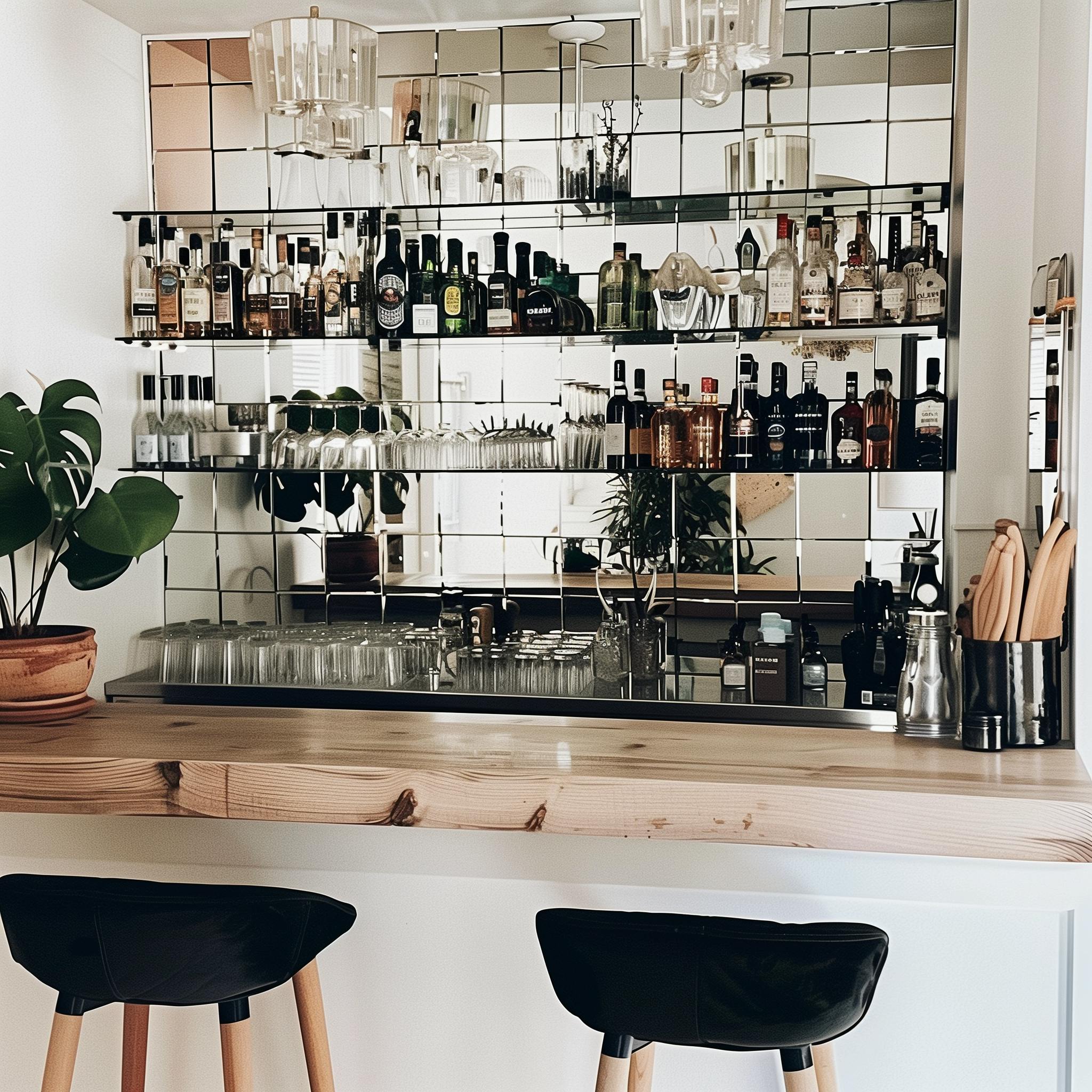🎨 How to Pick the Right Mirror Tiles
Getting Started
Mirror tiles are a great way to make your space look bigger and brighter. They add sparkle and style to walls, kitchen backsplashes, and other surfaces. This guide will help you choose the right mirror tiles for your project without getting overwhelmed by all the options.
Why People Love Mirror Tiles
- ✨ Make rooms look bigger: Mirrors reflect light and create the illusion of more space.
- 💡 Brighten dark areas: They bounce natural and artificial light around your room.
- 🏠 Add style: Mirror tiles give any room a modern, polished look.
- 🎯 Lots of options: Available in different shapes, sizes, and finishes to match your style.
Types of Mirror Tiles: Glass vs Plastic
There are two main types of mirror tiles. Here's what you need to know about each:
Glass Mirror Tiles (Most Popular)
Glass tiles are the most common choice. They come in different thicknesses:
- 1/8" thick: Lightest and cheapest, but might bend slightly (creating wavy reflections)
- 3/16" thick: Good middle choice - not too heavy, minimal waviness
- 1/4" thick: Heaviest and most expensive, but gives the clearest reflection
👍 Good: Durable, clear reflection, available in many finishes
👎 Not so good: Heavier than plastic, more expensive (especially thick ones)
Acrylic Mirror Tiles (Plastic)
These are made of plastic and are much lighter than glass.
👍 Good: Very light, cheaper, comes in fun colors
👎 Not so good: Bends easily (distorted reflection), scratches easily, not as durable
Picking the Right Look
Clear Mirror Tiles
These are the classic choice. They give you a crisp, clean reflection and work with any decorating style.
Antique/Aged Mirror Tiles
These have a weathered, vintage look with dark spots and patterns. They add character but cost more.
💡 Tip: Order a sample first to see if you like the pattern!
Colored Mirror Tiles
Fun option for kids' rooms or creative spaces. Mostly available in plastic, so they might not last as long.
Shapes and Sizes Made Simple
- Square tiles (12" x 12" or 11" x 11"): Most common and easiest to work with
- Rectangle tiles (subway style): Popular for kitchen backsplashes
- Special shapes (hexagons, etc.): Unique but might need to be custom ordered
💡 Quick tip: Bigger tiles = fewer seams = easier installation!

Square 8" x 8" mirror tiles in a kitchen
Edge Styles (How the Borders Look)
| Edge Type | What It Looks Like | Where to Buy | Cost |
|---|---|---|---|
| Beveled Edge | Angled edges that create a fancy framed look | Online stores | Medium |
| Flat Polished Edge | Smooth, flat edges for a clean modern look | Online and stores | Medium |
| Basic Edge | Simple smoothed edges, not fancy but safe | Glass shops | Cheapest |
Quick Comparison: Which Type Should You Choose?
| What Matters | Thin Glass | Medium Glass | Thick Glass | Plastic |
|---|---|---|---|---|
| Price | $ | $$ | $$$ | Cheapest |
| Wavy Look | Some | Very Little | Almost None | Lots |
| How Heavy | Light | Medium | Heavy | Very Light |
| How Long It Lasts | Good | Good | Best | Not Great |
Things to Remember
- 🔧 Installation: Glass tiles are heavy and breakable - handle carefully
- 🥽 Safety first: Always wear gloves and safety glasses
- 🧴 Use the right glue: Special mirror adhesive prevents damage
- 🧽 Keep them clean: Mirror tiles show fingerprints easily
- 🌡️ Watch the temperature: Hot and cold changes can affect the glue
Bottom Line
Mirror tiles can make your space look amazing! Take your time picking the right type, size, and finish. When in doubt, get samples first and don't be afraid to ask a professional for help.